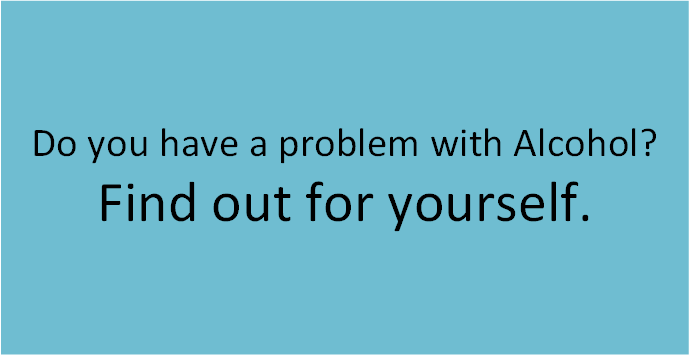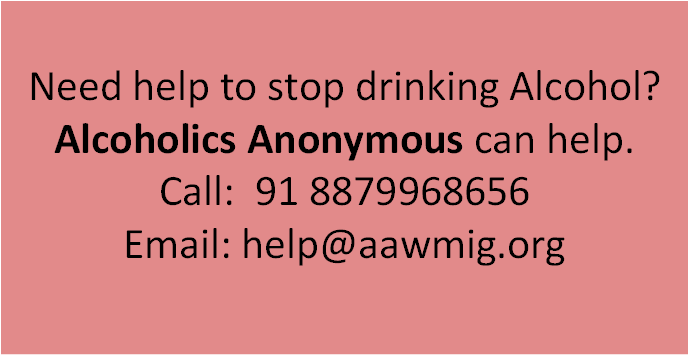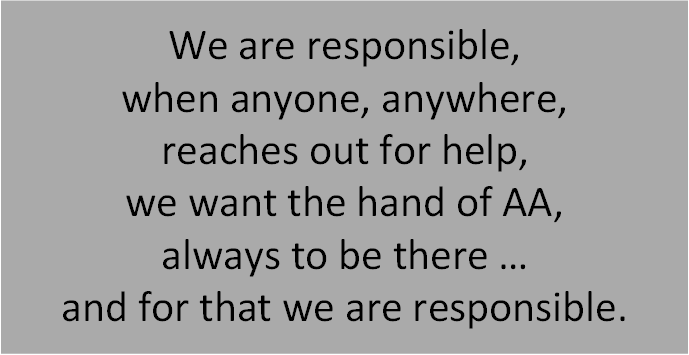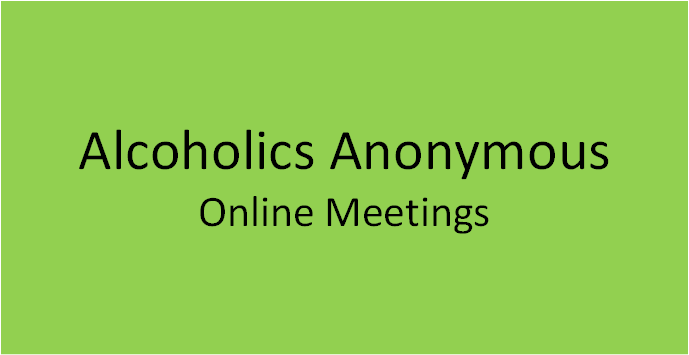Dangers in Linking AA To Other Projects
by Bill W.
Copyright © The A.A. Grapevine, Inc., March 1947
Our AA experience has been raising the following set of important, but as yet unresolved, questions. First, should AA as a whole enter the outside fields of hospitalization, research and non-controversial alcohol education? Second, is an AA member, acting strictly as an individual, justified in bringing his special experience and knowledge into such enterprises? And thirdly, if an AA member does take up these phases of the total alcohol problem, under what conditions should he work?
With respect to these questions, almost any opinion can be heard among our groups. Generally speaking, there are three schools of thought: the “do everything” school; the “do something” school; and the “do nothing” school.
We have AAs so fearful we may become entangled, or somewhat exploited, that they would keep us a strictly closed corporation. They would exert the strongest possible pressure to prevent all AAs, whether as individuals or groups, from doing anything at all about the total alcohol problem, except, of course, their straight AA work. They see the specter of the Washingtonian movement among alcoholics of a hundred years ago which fell into disunity partly because its members publicly took up cudgels for abolition, prohibition-and whatnot. These AAs believe that we must preserve our isolation at any cost; that we must keep absolutely to ourselves if we would avoid like perils.
Then we have the AA who would have us “do everything” for the total alcohol problem-any time, any place and any way! In his enthusiasm, he not only thinks his beloved AA a “cure-all” for drunks, but he also thinks we have the answer for everybody and everything touching alcohol. He strongly feels that AA ought to place its name and financial credit squarely behind any first-rate research, hospital or educational project. Seeing that AA now makes the headlines, he argues that we should freely loan out our huge goodwill. Says he, “Why shouldn’t we AAs stand right up in public and be counted? Millions could be raised easily for good works in alcohol.” The judgment of this enthusiast is sometimes beclouded by the fact he wants to make a career. But with most who enthuse so carelessly, I’m sure it’s more often a case of sheer exuberance plus, in many instances, a deep sense of social responsibility.
So we have with us the enthusiasts and the ultra-cautious; the “do everythings” and the “do nothings.” But the average AA is not so worried about these phenomena as he used to be. He knows that out of the heat and smoke there will soon come light. Presently there will issue an enlightened policy, palatable to everyone. Tested by time, that policy, if sound, will become AA tradition.
Sometimes I’ve feared that AA would never bring forth a workable policy. Nor was my fear abated as my own views swung with complete inconsistency from one extreme to the other. But I should have had more faith. We are commencing to have enough of the strong light of experience to see more surely; to be able to say with more certainty what we can and what we surely cannot do about causes such as education, research and the like.
For example, we can say quite emphatically that neither AA as a whole nor any AA group ought to enter any activity other than straight AA. As groups, we cannot endorse, finance or form an alliance with any other cause, however good; we cannot link the AA name to other enterprises in the alcohol field to the extent that the public gets the impression we have abandoned our sole aim. We must discourage our members and our friends in these fields from stressing the AA name in their publicity or appeals for funds. To act otherwise will certainly imperil our unity, and to maintain our unity is surely our greatest obligation -to our brother alcoholics and the public at large. Experience, we think, has already made these principles self-evident.
Though we now come to more debatable ground, we must earnestly ask ourselves whether any of us, as individuals, ought to carry our special experience into other phases of the alcohol problem. Do we not owe this much to society, and can it be done without involving AA as a whole?
To my mind, the “do nothing” policy has become unthinkable, partly because I’m sure that our members can work in other noncontroversial alcohol activities without jeopardizing AA, if they observe a few simple precautions, and partly because I have developed a deep conviction that to do less would be to deprive the whole of society of the immensely valuable contributions we could almost certainly make. Though we are AAs, and AA must come first, we are also citizens of the world. Besides, we are, like our good friends the physicians, honor-bound to share all we know with all men.
Therefore it seems to me that some of us must heed the call from other fields. And those who do need only remember first and last they are AAs; that in their new activities they are individuals only. This means that they will respect the principle of anonymity in the press; that if they do appear before the general public they will not describe themselves as AAs; that they will refrain from emphasizing their AA status in appeals for money or publicity.
These simple principles of conduct, if conscientiously applied, could soon dispel all fears, reason-able and unreasonable, which many AAs now entertain. On such a basis AA as a whole could remain uncommitted yet friendly to any noncontroversial cause seeking to write a brighter page in the dark annals of alcoholism.
Briefly summarizing, I’m rather sure our policy with respect to “outside” projects will turn out to be this: AA does not sponsor projects in other fields. But, if these projects are constructive and noncontroversial in character, AA members are free to engage in them without criticism if they act as individuals only, and are careful of the AA name. Perhaps that’s it. Shall we try it?
Copyright © The A.A. Grapevine, Inc., March 1947




